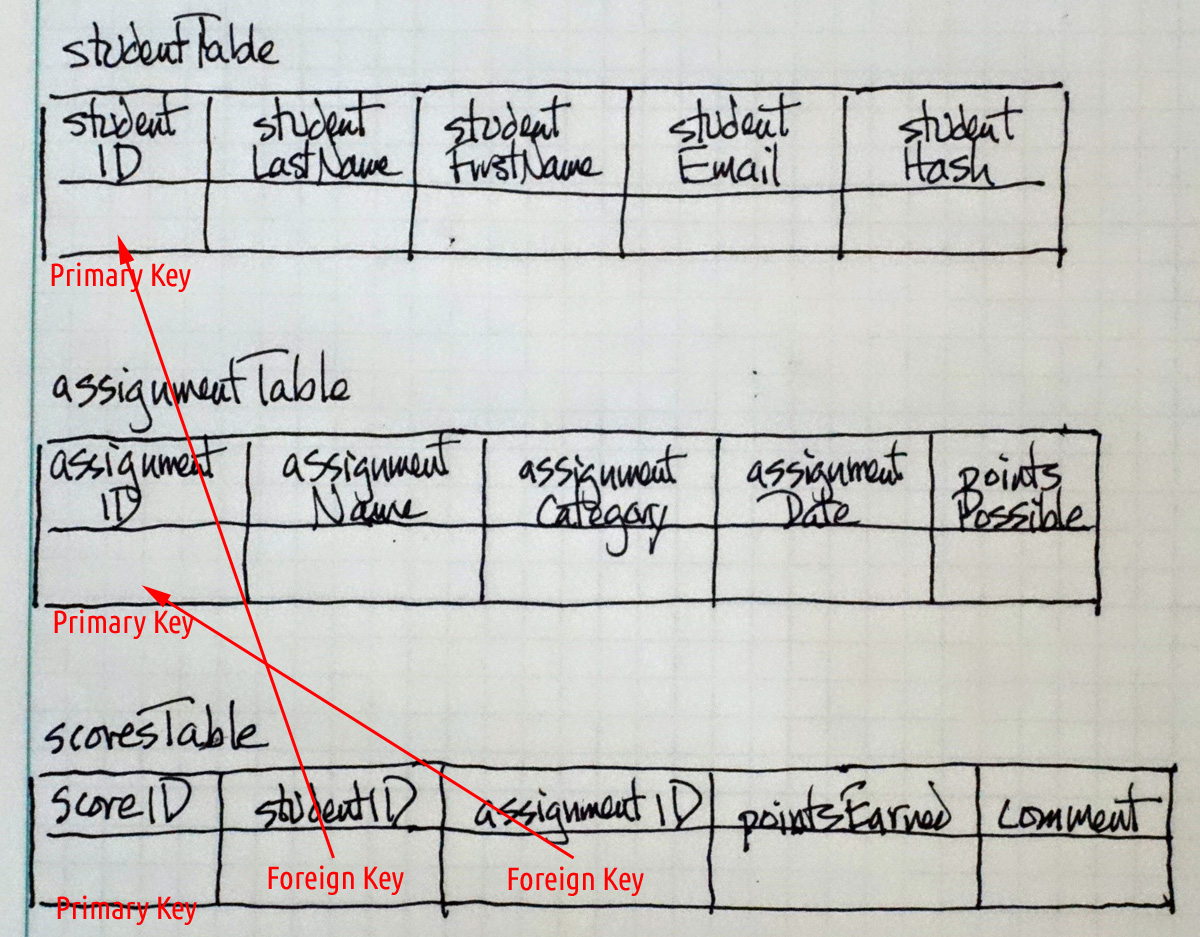DYNAMIC RESPONSE VS. LESSON PLANNING
Richard White
2013-04-27
“We plan now so we can improvise later.”
Tuesday had been a decent day with the students in my Computer Science class. After having taken a few days to work through the concept of a flat-file database, and writing a small AddressBook.py program that would manage their contacts, I’d taken Tuesday to introduce the concept of a relational database. The transition from “rows and columns” in a text file to “records and fields” in a database was easy enough, and after a quick look at a typical page on Reddit–essentially a large discussion board where people can write a follow threaded messages–we’d designed our own tables that would do the same thing. We were all set for Thursday when students would actually start writing a Python program to implement the idea.
We were poised to work on this activity, just as my students had done for the last couple of years… but late Wednesday evening, as I anticipated the next day’s teaching, I decided to change it.
It was one of those realizations that comes later, only after you’ve planned something and maybe even tried it out a few times, a realization that reveals in shocking and funny ways how hard it can be to anticipate everything. I realized that one potential stumbling block for students in the past couple of years had been the fact that using databases requires the introduction of a new language–Structured Query Language, or SQL–which I probably (certainly) hadn’t prepared them for. In the rush to get them working on the Python code, I’d glossed over some of the key concepts that they’d need to understand if this assignment was going to be useful in building their understanding.
This was partly by design. At the end of the school year, there was little time to devote to a large unit like this, so I’d opted to try to squeeze it all into a week, and the students were faring about as well as you’d expect they would: they were getting confused and frustrated by trying to do too much too quickly.
So Wednesday night, from 11pm to 12am, I sat down and bashed out a new discussion/demonstration for the next day. It would be laptops-closed for twenty minutes or so as we developed GradeKeeper, a database that I could use to track their scores on assignments. We would develop the tables in class–studentTable, assignmentTable, scoreTable–emphasizing the concept of primary keys and foreign keys–and then I would show them a working model of the database in class. I “quickly” jotted down the development process that I wanted to take them through in class, and threw together (in SQLite) the database itself that I would show them, with 3 sample students, 6 assignments, and 18 recorded scores.
It was an hour later before I finally crawled into bed, but that new lesson, presented the next morning, turned out to be just the “Ohhhhh… I get it!” step that had been missing in my students’ understanding in previous years.They still weren’t ready to run out and develop the DicussionBoard program completely on their own just yet, but they had a much better idea of the method behind the madness when their programs executed an otherwise arcane-looking SQL query.
Now you probably don’t teach Computer Science and those five or six paragraphs above may be a bit arcaane themselves, but the point is this: planning what we do in the classroom is, for me, a vital step in improving my effectiveness as a teacher. Without planning I can certainly walk into the classroom and speak extemporaneously, and if I’m lucky and the material isn’t too technical, my brighter kids will be able to pick up most of what I’m talking about.
But to be most effective, we need to carefully consider the logical steps that will help our students build their understanding of a topic. That kind of careful consideration comes with planning, and (in the example above) comes with reflecting on plans that have been delivered in the past.
Lesson planning is a good first step, but it needs to be followed by reflection on the effectiveness of the lesson as well, and with a willingness to improvise as required. Lesson planning doesn’t mean that we are required to strictly adhere to those plans, lock-step and with no awareness or consideration of how students are responding to the experience.
But it’s a good first step to delivering great instruction, and will provide a jumping off point for furter development and exploration of your teaching strategies.
Whether it’s notes on paper, a text file on the computer, or a PowerPoint presentation, planning instruction will make you a better teacher.
Give it a try!
